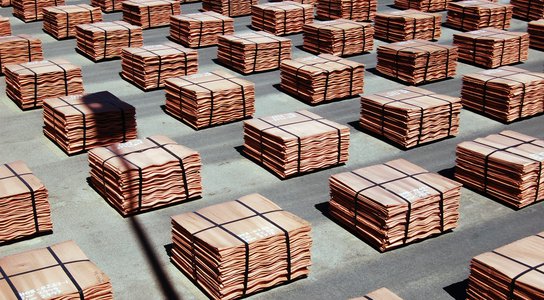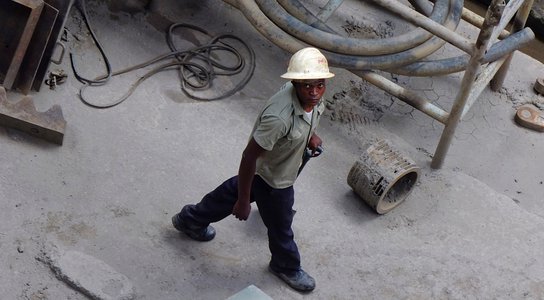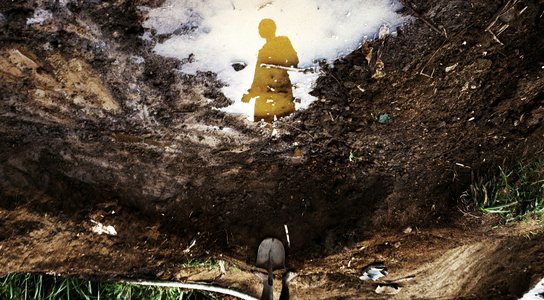An $800 million deal for one of Democratic Republic of Congo’s (DRC) flagship copper mines risks leaving the country short-changed, Global Witness reveals today. In violation of DRC’s mining law, key details of the mega deal signed between DRC’s state-owned miner, Gécamines, and the China Nonferrous Metal Mining Group (CNMC) remain unpublished. Meanwhile, the scant information that is available raises more questions than answers about the financial value of the project for DRC, Global Witness’s analysis has found.
CNMC, a large Chinese state owned enterprise, and Gécamines struck a deal for the potentially huge Deziwa copper and cobalt mine in DRC’s southern Copperbelt in 2015, part of an even larger $2 billion accord for five different projects. Global Witness’s investigation into CNMC’s deals with Gécamines has found agreements characterised by opacity and questionable terms. This includes a signature bonus to Gécamines for the Deziwa deal that may turn out to be worth just 50 percent of the headline figure promised to the company in the contract.
Global Witness has also uncovered information about a fixer, Siu Kam Ng, who gave a media interview in 2016 which he claimed to have made suspect payments to DRC officials to ease CNMC’s path into the country’s mining sector some years ago. Our investigation shows how this fixer, though not involved in the Deziwa deal, currently owns a significant stake in CNMC’s DRC-based mining businesses, raising questions about the company’s activities in the country.
“The deals Gécamines has struck with CNMC, for licences covering huge reserves of copper, are highly opaque. The upshot is that the people of DRC do not know what they are getting in return for their resources, and they potentially stand to lose out,” said Jean-Luc Blakey, Senior Campaigner at Global Witness.
The only public contract for the Deziwa project, analysed by Global Witness, is in fact only a covering document that sets out the basic parameters of the deal. The full details are contained in a series of subcontracts and amendments that have been kept secret, despite DRC’s legal obligation to publish them under the country’s mining laws.
The Deziwa mine went into production in January 2020, around the same time CNMC opened a vast copper smelter in Lualaba province. Since 2012, CNMC has acquired rights across DRC’s copper and cobalt seams. The scale of these acquisitions and new operations have catapulted CNMC into the upper echelons of DRC copper producers.
CNMC’s collaboration with Gécamines is central to its success in DRC and has helped make CNMC a major player in the country’s copper sector. This report draws together, for the first time, details of the partnership between the two companies.
“Global Witness’s analysis of CNMC’s business dealings with Gécamines has found that corporate and contractual secrecy, colourful middlemen and questionable deals by the Congolese state-owned miner remain a reality in DRC’s copper sector," said Blakey.
Copper is a key component in many of the renewable technologies that can help tackle the climate crisis, as is the cobalt extracted as a by-product of copper mining. Both could be central to a sustainable and more equitable future, if managed responsibly.
“DRC’s mineral reserves should place it at the centre of the renewable energy revolution and could be a significant source of revenues for the country. Yet as this report highlights, very little is known about how these minerals are being sold off and what the Congolese people stand to gain in reality,” said Blakey.
Global Witness is calling on Gécamines to follow Congolese law and publish all of the contracts for its deals with CNMC, including the financial models and projections for the Deziwa project.
In the past a few years, the Chinese government has introduced regulations, guidance and initiatives to reduce environment, social and corruption risks in Chinese investments overseas. In line with this, CNMC should ensure all of its investments in DRC abide by Congolese law as well as the Chinese government guidelines, and urge its local partner, Gécamines, to publish all of the contracts relating to their deals. CNMC should also clarify its relationships with brokers and middlemen in DRC and produce detailed information on the source of all of its copper and cobalt.
/ ENDS
Contacts
Notes to editor:
CNMC
China Nonferrous Metal Mining Group (CNMC) is a Chinese state-owned company established in 1983. A large, diversified company, its subsidiary operations include mines, smelters, refineries, construction and engineering firms, trading and technological services. It was one of the first Chinese companies to enact the country’s ‘Going Out’ policy, and now operates in over 80 countries.
Gécamines
Gécamines is Democratic Republic of Congo’s state-owned mining company, founded in 1966. The company’s most productive period was during the mid-1980s. Since then, it has sold many of its assets and entered joint ventures with foreign partners. It has been beset by allegations of corruption and mismanagement, including secretly selling concessions worth billions to insiders at knock-down prices, diverting tens of millions of dollars in mining revenues to corrupt officials and failing to pay staff wages or invest in its own development.
Siu Kam Ng
Siu Kam Ng has acted as a fixer for CNMC in the past. A mineral trader originally from Fujian Province in China, he reportedly moved from Hong Kong to South Africa in the late nineties before moving onto Zambia and then DRC in pursuit of minerals, where he has enjoyed considerable success. He is a shareholder in CNMC’s DRC subsidiaries Huachin Leach Metal SA, CNMC Huachin Mabende and Silverback Resources Sarl.
Deziwa Mine
Production at the Deziwa mine was officially launched in January 2020. Prior to being taken over by CNMC, Deziwa was being developed in a partnership between Gécamines and Platmin Congo. Gécamines reacquired full control of Deziwa by buying out its partner using a 2012 loan of almost $200m from a company belonging to the controversial mining magnate Dan Gertler. Reportedly, Gécamines eventually defaulted on its loan in 2015 and, in a secretive arrangement, ceded its royalty rights from a different mining project called Kamoto Copper Company (KCC), which had been used as collateral for the loan, to one of Gertler’s offshore companies.
You might also like
-
Report The Deal for Deziwa
Mega deal between Gécamines and Chinese state-owned company CNMC for one of DRC’s flagship copper mines could be leaving the country short-changed
-
Report Regime Cash Machine
How the Democratic Republic of Congo’s booming mining exports are failing to benefit its people
-
Campaign Democratic Republic of Congo
The Democratic Republic of Congo (DRC) has an immense wealth of natural resources. But instead of driving development, these riches are benefiting predatory elites, armed groups and cowboy firms.